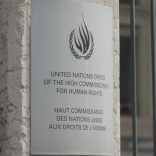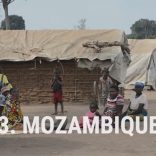Mozambique: No rehabilitation centres for minors under the age of criminal responsibility in Maputo ...
Portugal: Gulbenkian, La Caixa fund health research in Africa with €500,000

File photo: Gulbenkian
The Gulbenkian Foundation and the “la Caixa” Foundation will support three projects from PALOP scientific institutions in the areas of microbiome, cancer and Covid-19, with an investment of around €500,000 until 2023, they announced on Wednesday.
The projects, selected by an international jury, are led by researchers from Angola, Cabo Verde and Mozambique, who participated in the Science Management course, an initiative promoted by the two foundations between 2018 and 2020 involving around 50 researchers in the three editions, according to a statement from Gulbenkian.
The National Institute for Health Research, via the Angolan Health Research Centre, will manage the project, “Helminth infections and allergic respiratory diseases. Does a neglected tropical disease influence a non-communicable disease? The project aims to understand the link between allergic respiratory disease with helminths (intestinal parasites) and the role that the intestinal microbiome may have in asthma and helminth control.
This project is a partnership with the Luanda Military Hospital and the Lisbon Higher School of Health Technologies and is led by Jocelyne Vasconcelos and Margarete Arrais.
The Mozambique National Institute of Health was another winner of the competition with the project “Epidemiology and characteristics of SARS-CoV-2 infection among children and their households in Mozambique,” led by Nilsa de Deus and Osvaldo Inlamea, for the next two years, the statement said.
The project will study SARS-Cov-2 in children from three primary schools in urban, peri-urban and rural Maputo.
The researchers will analyse the mortality and morbidity rates in these age groups and carry out an epidemiological study and a seroprevalence survey that will allow understanding the exposure to the virus by the children.
For its part, the University of Cabo Verde will run the project “Clinical-Pathological Characterisation of PALOP’S Cancer – INCUBATOR”, a project that aims to understand the incidence of prostate cancer in Cape Verde and Mozambique, to make a biological study, and to know which is the most frequent subtype of this cancer that kills most in Cape Verde.
This project also includes creating the digital laboratory “INCUBATOR”, a platform for the publication of data and information to support the diagnosis of prostate cancer.
The project is led by Neidy Varela Rodrigues and Mamudo Ismail, in a partnership with the Faculty of Medicine, Eduardo Mondlane University, in Mozambique.
The Calouste Gulbenkian Foundation and the “la Caixa” Foundation have been developing an annual programme – “Course in Science Management” – aimed at researchers and managers of research institutions, public or private, in the area of health, namely scientific directors, coordinators and managers of programmes from Portuguese-speaking African Countries (PALOP).












Leave a Reply
Be the First to Comment!
You must be logged in to post a comment.
You must be logged in to post a comment.